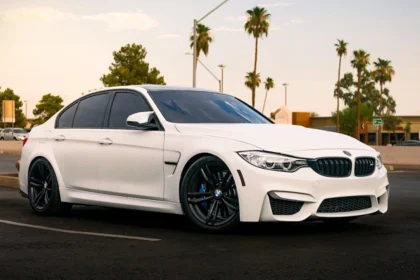Wealthy consumers changed the game. They want luxury that doesn’t harm the planet. This shift affects everything from private jets to digital entertainment platforms.
The numbers tell the story. About 73% of high-net-worth individuals now consider environmental impact when buying premium products or services. They’re not just looking at price and quality anymore.
This change hits all industries. Even entertainment and gaming sectors adapt their business models. Responsible gaming organizations now integrate environmental and social accountability into their frameworks. The ICRG sets standards that demonstrate how entertainment industries can balance premium experiences with comprehensive responsibility, showing that luxury and sustainability work together rather than against each other.
Green Technology That Actually Works
Smart homes lead the sustainable luxury trend. Rich people want convenience without waste.
Home automation systems cut energy use by 40% while making life easier. They control everything automatically:
- Solar panel optimization
- Battery storage management
- Climate control based on occupancy
- Time-of-day energy pricing
- Water heating schedules
Tesla’s Powerwall stores solar energy for backup power. Combined with solar roof tiles, these systems save $15,000-25,000 yearly for large homes. The technology pays for itself in 6-8 years.
Premium appliances perform better while using less energy. Sub-Zero refrigerators consume 40% less power than standard models. Miele dishwashers use 30% less water but clean perfectly every time.
Control4 automation costs $50,000-200,000 for luxury homes. Owners report the investment feels worth it for both savings and convenience.
Luxury Travel Goes Green
Private aviation companies now offer sustainable fuel options. NetJets reduces emissions by 85% on select routes through bio-fuel partnerships. Their carbon offset program lets clients achieve net-zero flights.
Most NetJets owners (84%) now consider environmental impact when booking. They want privacy and convenience but not guilt.
High-end resorts compete on sustainability:
- Soneva properties run on 100% renewable energy
- Six Senses eliminated single-use plastics completely
- Aman resorts source 90% of food locally
- Edition hotels achieved LEED Platinum certification
Private yacht builders embrace hybrid engines. Ferretti Group’s new yachts combine electric motors with traditional power. Owners can cruise silently through marine protected areas then switch to full power for ocean crossings.
Investment Money Follows Green Trends
Rich people invest differently now. About 45% of high-net-worth clients specifically request ESG-focused investments from their private equity firms.
The sustainable luxury market hit $15.6 billion in 2023. Annual growth runs at 12% through 2030. That’s real money following real demand.
Venture capital targets these sectors:
- Laboratory-grown diamonds
- Bio-based packaging materials
- Electric aviation startups
- Circular economy platforms
- Renewable energy storage
Green real estate generates higher returns.
LEED-certified buildings earn 7% more rent and sell for 20% more than conventional properties. Luxury developments with renewable energy command premium pricing in major cities.
Materials and Design Innovation
Luxury brands source materials differently. They want quality without environmental damage.
Bentley’s Beyond100 strategy commits to full electrification by 2030. Their Bentayga Hybrid cuts fuel use by 50% while maintaining performance standards. Interior materials include sustainably sourced wood and recycled components.
Fashion brands lead material innovation. Stella McCartney uses organic cotton, recycled polyester, and bio-materials. Her Re.Vers program takes back worn items for recycling.
Hermès partners with MycoWorks to develop mushroom-based leather. Laboratory tests show it matches traditional leather in durability and texture. Production starts with small goods then expands to handbags.
Tesla’s Model S Plaid accelerates to 60 mph in 1.99 seconds with zero emissions. The interior features recycled materials and vegan alternatives. About 68% of Tesla buyers cite environmental impact as their main reason for purchase.
Luxury Jewelry and the Circular Economy
Luxury jewelry fits naturally into the sustainability conversation because it’s designed to last. Gold, diamonds, and fine gemstones don’t lose their value or usefulness over time, which makes jewelry one of the most circular luxury assets available. Instead of sitting unused, high-end pieces can be resold, redesigned, or reintroduced into the market with minimal environmental impact.
Wealthy consumers increasingly see selling jewelry as a responsible choice rather than a last resort. This keeps precious metals and stones in circulation and reduces demand for new mining. Pre-owned and recycled materials now carry the same prestige as newly sourced ones and often more, because they reflect awareness and restraint.
As sustainability reshapes luxury standards, jewelry proves that elegance, value retention, and environmental responsibility can exist together. Circular practices aren’t changing what luxury looks like, but refining it.
What This Means for Industries
Environmental consciousness became part of sophisticated living. Companies that ignore this lose market share.
The luxury market rewards authenticity over marketing claims. Consumers research environmental impact before buying. They spot greenwashing quickly and punish brands that fake sustainability.
Premium pricing now requires environmental justification. Customers pay more for products that align with their values. This creates opportunities for truly sustainable brands while pushing out companies that only talk about being green.
Industries adapt or get left behind. Gaming platforms implement responsible practices. Hotels redesign operations around sustainability. Car manufacturers go electric. Private jet companies offer carbon offsets.
The money follows the values. As environmental awareness grows among wealthy consumers, sustainable luxury becomes the only luxury that matters. Companies either evolve their practices or watch customers choose competitors who did.










